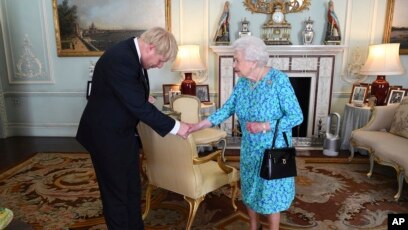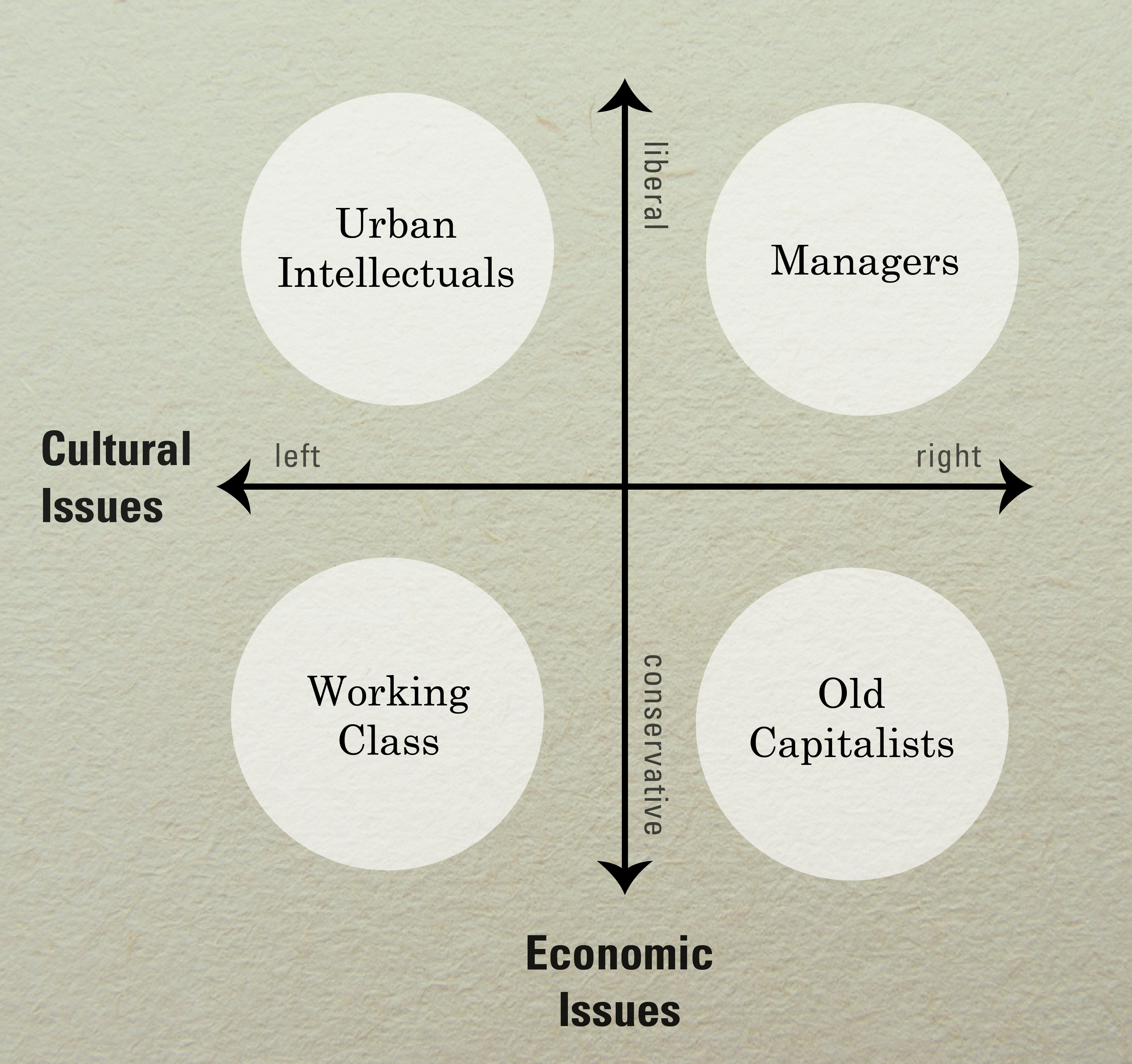Conservative Critics of the New Deal Regularly Argued That
The effort undertaken on the part of the federal government to supply cheap electrical power for homes and factories in a seven-state region preventing flooding and putting the federal government in the business of selling electricity by building a series of dams was called. The biggest opposer of the New Deal was Huey Long who critisized Hoover since the New Deals point was to Share our Wealth Huey Long argued that Hoover was not dooing enough to help the poverty.

The Scary Future Of The American Right The Atlantic
Why did Ronald Reagan critisize the new deal of the 1930s and the great society of the 1960s.

. They felt that the New Deal limited individual freedoms and resulted in the federal government becoming too involved in the everyday life of American citizens. Roosevelt was unconstitutionally expanding the powers of the presidency. The conservative sponsors of the.
The New Deal Sucked. Wasting Away in Hooverville. As late as 1952 critics continued to argue that the New Deal has been a Trojan horse the opening wedge of a secret battle.
Leftist critics of the New Deal argued that it was like putting a band-aid on an open wound. Conservative critics of the New Deal regularly argued that. Conservatives commonly viewed New Deal reforms as an unlawful hindrance to a capitalistic free-market economy and criticized Franklin Delano Roosevelt for overstepping his presidential authority.
A Reply to Ben Shapiro. Liberals often supported New Deal values but criticized the programs for failing to provide adequate relief for impoverished citizens. Reagan was a conservative and as such he.
Senior Writer Campaign for Americas Future. While many people supported Roosevelt especially in the first few years of his presidency the New Deal did receive significant criticism both from conservatives who felt that it was a radical agenda to ruin the countrys model of free enterprise and from liberals who felt that it did not provide enough help to those who needed it most. Ronald Reagan boasted of having voted for Franklin Roosevelt.
One heard regularly by ten million Americans. All of the above. Increased government control of the economy was undoubtedly a positive step but ultimately it wasnt.
1 Critics of the New Deal included all of the following EXCEPT Selected Answer. Conservatives opposed the new deal. A massive redistribution of wealth would be upheld by the US.
Conservatives have long been critical of universities and the liberal arts. A generation ago the total dismissal of the New Deal remained a marginal sentiment in American politics. Conservatives are stuck in their default position preferring fictional history to actual history refusing to acknowledge what clearly has worked to stimulate the economy and what clearly hasnt.
New Deal policies had gone too far toward socialism. According to them the deal was helping the big business houses by imposing favorable regulations Suspension of Gold standard. The critics of the new deal thought it to a violation of the constitution as it was considered to be based on the strong involvement of the state in the economy and also weakened individual liberty.
Members of the Civilian Conservation Corps who thought the government should play a greater role in assisting businesses and stimulating the economy. There was now too much government control over private business The free enterprise system. While many people supported Roosevelt especially in the first few years of his presidency the New Deal did receive significant criticism both from conservatives who felt that it was a radical agenda to ruin the countrys model of free enterprise and from liberals who felt that it did not provide enough help to those who needed it most.
The intellectual roots of this outlook can be traced to the founder of modern conservatism Edmund Burke who was famously critical of the overeducated philosophes who agitated for the French Revolution. President Roosevelts critics from the left believed. The journalist Willard Edwards feared that there existed among Fair Dealers a secret blue print for a super-state in America.
Simons wrote in 1938 that the main direction of New Deal policies is toward authoritarian collectivism. Some conservatives felt that the government was getting too big and invasive. The Old Right emerged clearly in opposition to it.
They considered that a stronger federal government would jeopardize American freedom through the increase of government intervention in the economy. While it might well be argued that movement toward equal economic condition represents a logical extension of the New Deal impulse into a period of prosperity neo-conservatives are unwilling so to extend their aims They fear both that major government efforts toward equality would have negative consequences for the economy as a whole from which. Conservative Critiques of the Liberal Arts.
For a generation the dominant interpretation was that of James Patterson who in Congressional Conservatism and the New Deal argued that the court-packing controversy was the catalyst for an alliance of Southern Democrats conservative Republicans and disaffected progressives that dominated the Congress for the next quarter century. Main criticisms of the New Deal by conservatives included. All of the following were major critics of the New Deal EXCEPT.
In 1937 Josiah Bailey a Democratic senator and one of the staunchest critics of the New Deal released a Conservative Manifesto that presented conservative philosophical tenets including the line Give enterprise a chance and I will give you the. Conservatives were very critical of the New Deal which they thougt was a betrayal of American values of liberty.

The Long Crusade Of Clarence And Ginni Thomas The New York Times

Conservatism Conservatism In The 19th Century Britannica

Did Boris Johnson Lie To The Queen

Astrology In Real Terms Scorpio Ruthless Immoral Sounds About Right Meaningful Words Pisces Traits Pisces

The Rebirth Of The Left Conservative Tradition Tablet Magazine

Opinion Canada S Conservative Party Is In Shambles The Washington Post

David Brooks Conservatism Is Dead The Atlantic

Political Positions Of Theodore Roosevelt Wikipedia

Critical Interpretations Of The New Deal Boundless Us History

Comments
Post a Comment